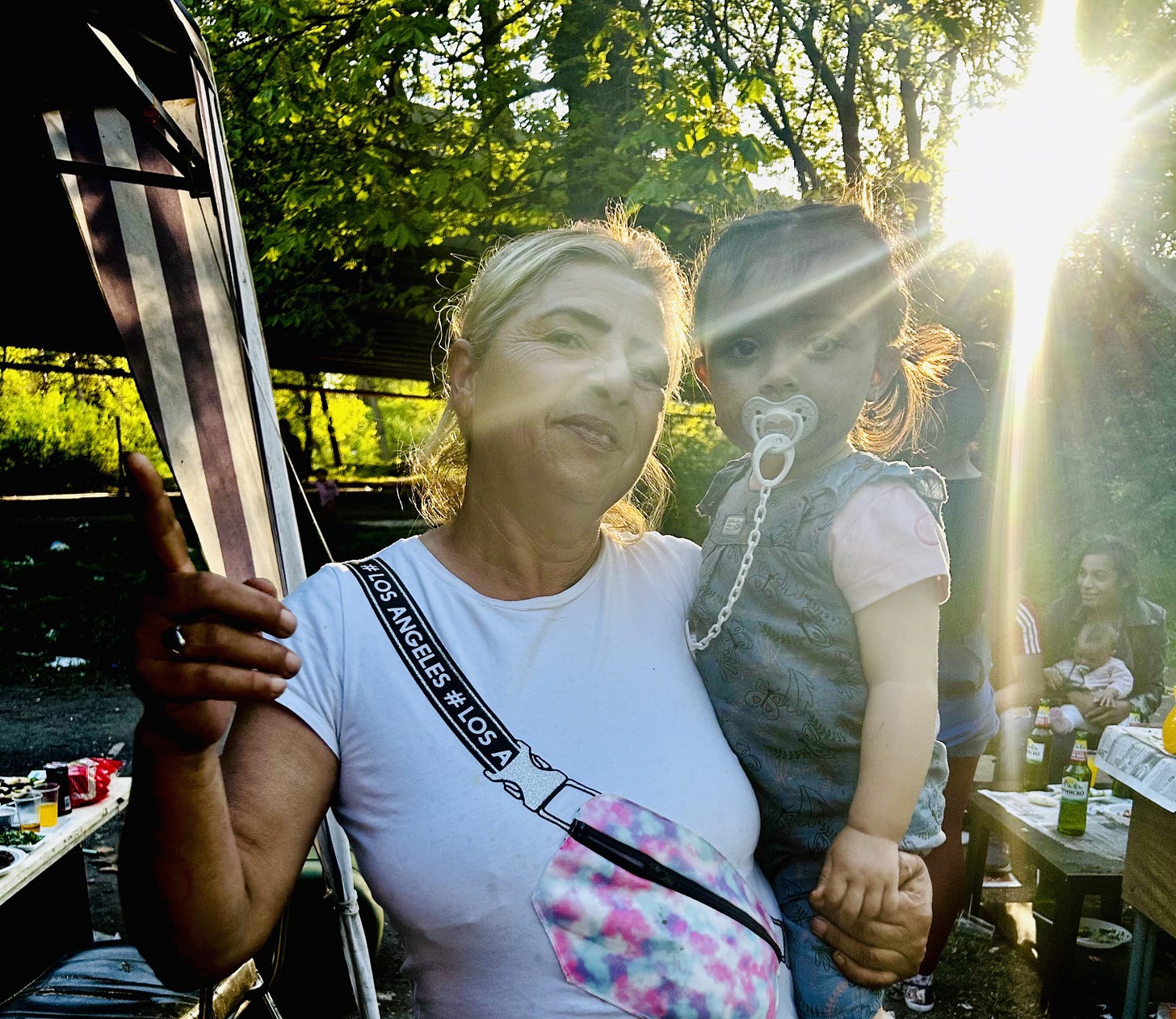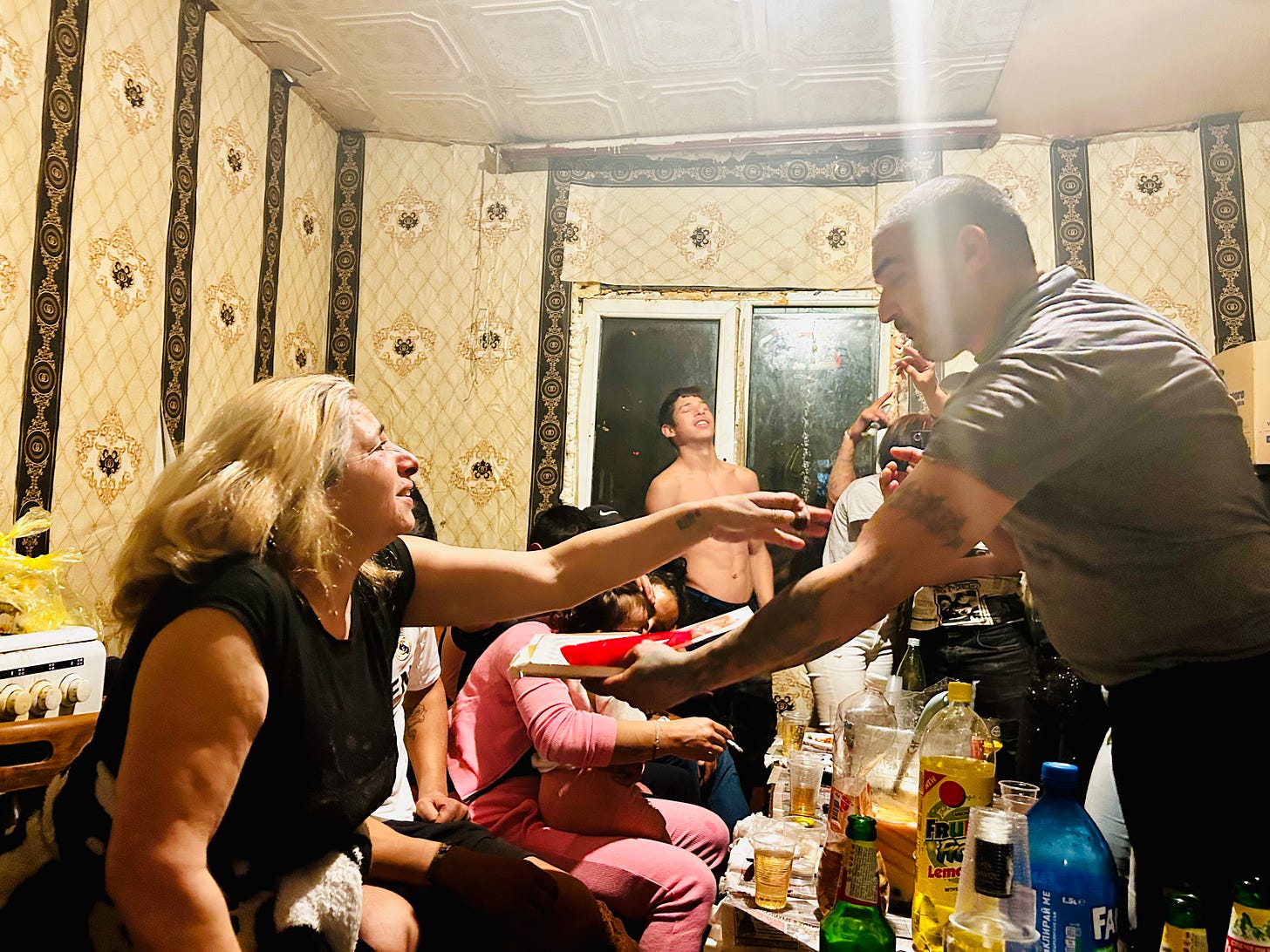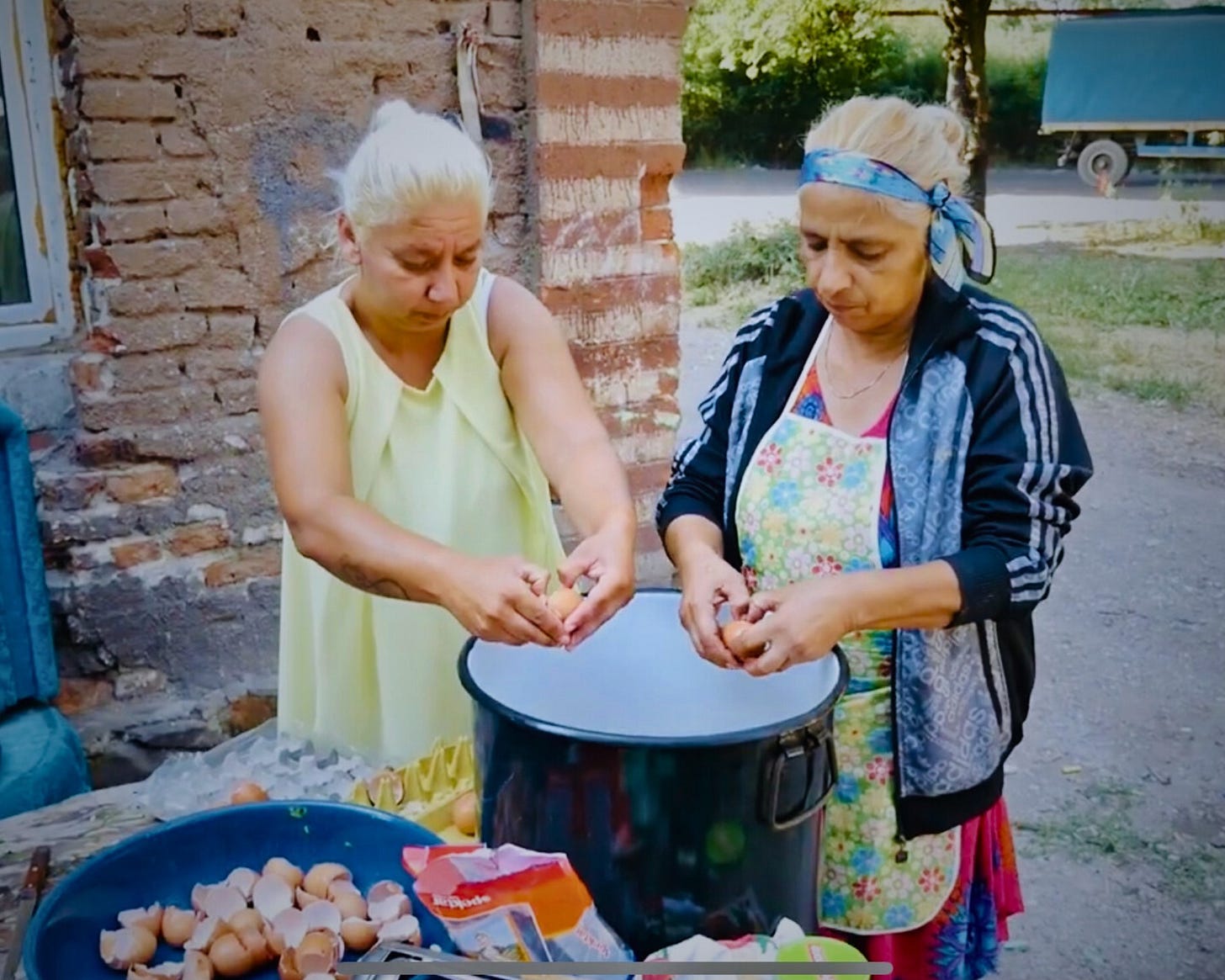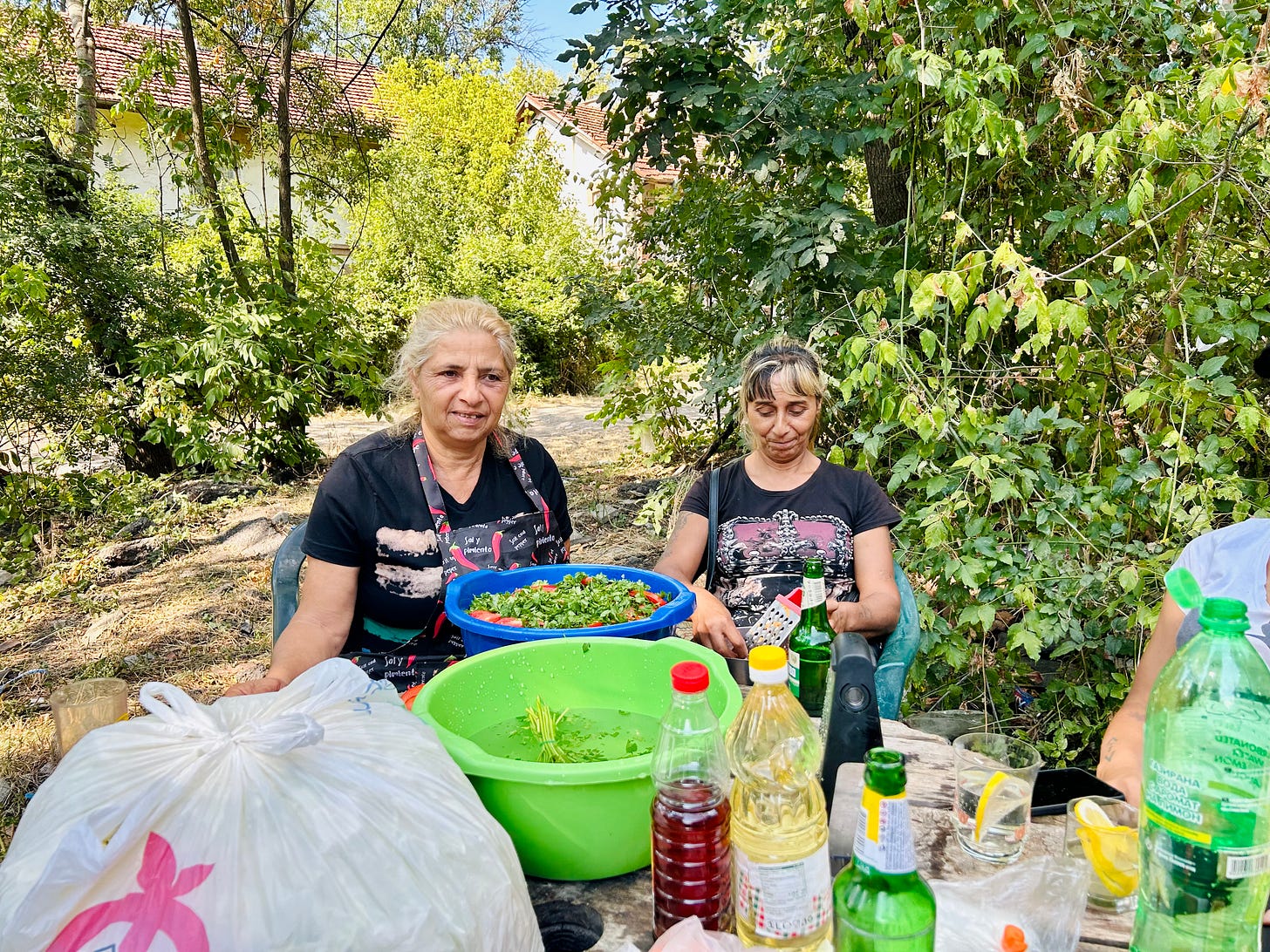
In 1979, thirteen-year-old Dana was saddled with her newborn brother Pepi. Like in most cases with isolated communities living in poverty, the older children help looking after the younger children while the parents work.
Pepi was the youngest out of 12 kids. Dana, stepping into her teens and age of independence, did her best to take care of the baby but felt crushed under the responsibility. She asked an aunt for help to go to an orphanage because only an adult could sign documents to give away Pepi.
That wasn’t new in the community. Families were often struggling with illness or starvation. So child protection services would sometimes take children away and also, mothers would sometimes voluntarily drop off a child at an orphanage for days, weeks, or months until they were stable enough to get the child back. Most of Pepi’s siblings had spent brief spells in the same orphanage that Dana took him to.
But Pepi was the only one who nobody came back for. It was because an aunt went with Dana, and not Pepi’s own mother or father, that something in the documents got confused and nobody was able to find him. This is how the story goes. How much is true, we can’t know, and Pepi himself doesn’t fully buy it. The orphanage in question doesn’t exist anymore and finding documents over forty decades ago, particularly for abandoned and orphaned children, is impossible.
Pepi spent 6 years there and was then transferred outside of our city—far, far away, in a small mountain village. After a few more transfers, when he was 16, he returned to Sofia and obtained his birth certificate so he could look for his parents. When he was getting close to the address of the mahala (or “Romani ghetto” as outsiders like to call it), he stopped a woman to ask for directions.
That woman, as fate would have it, was his sister Dana—the same one who gave him away as a baby.
“Who are you looking for at this address?” she asked the first and obligatory question you get when you enter the Romani domain: Who are you here for?
“I’m looking for my parents,” Pepi said, “Dimcho and Zorka.”
Things clicked very fast for Dana. She realized who is standing in front of her and threw herself at Pepi, crying and hugging him. He pushed her away, startled. “I am your sister,” Dana said and proceeded to lead incredulous Pepi into the ghetto where he met his parents, his other dozen siblings, and more nephews, nieces, and cousins than he could count.
This story is not a secret. Pepi tells it and Dana tells it—without a hint of shame, blame, or guilt.
And the reasons are several. Like we’ve shared before, the Roma don’t do shame and openly talk about truths that others in their place would try to hide. But another reason, a deep and nuanced one, is that the Roma forgive each other for things that any objective outsider would see as unforgivable.
“She was a child”
This is Pepi’s answer if you ask him about whether he holds a grudge against his sister Dana for abandoning him. “She was a child,” he says, “she would have craved freedom, time to herself, to hang out with friends.”
These are not empty words. If you see Pepi and Dana interact you would never guess she played such a role in the biggest wound in his soul. There is an easy banter between them, warmth, humor, and the visceral sense of shared history - only part of which is the first 6 months of his life. It is now decades after he returned to the tribe, and they have lived through so much happiness and heartbreak together, that Pepi’s orphan childhood is only part of their story.

“Almost immediately after I returned in 1996, she asked me for forgiveness and I forgave her. She was a child when it happened.”
Pepi also forgave his parents. They have now both passed away, but he was still able to share a life with them for several years before they were gone.
Make no mistake, though. Forgiveness here is not a sugary, larger-than-life favor that you grant. This is not a case of “they all hugged each other and lived happily ever after.” Pepi still has lingering anger towards his parents, and has had several fallouts with Dana during the years over all kinds of reasons. And he is a mere flame in the wildfire that is his tribe, where countless, countless situations and arguments have transpired between people.
Forgiveness here is not pure light. It is acceptance—of both yourself and the other person. In other words, forgiveness here means that you understand why the other person did what they did and, at the same time, you accept your own pain. You don’t downplay or exaggerate one in favor of the other. You hold both in equal measure. And you move on together without sentimentality but with authenticity—each one seeing the other clearly and accepting things as they are.
Spite is what’s truly unforgivable
In our Romani tribe, and most other Romani tribes, people can be accepting and understanding of many “unacceptable” things by mainstream society’s standards. If you’ve been to prison, especially for theft. If you are —or used to be—a sex worker. If you are an addict, of any kind. If you have made big mistakes—cheated on your spouse, lost your job because you got in an argument with your boss or coworker, got in a lot of debt or gambled away your entire salary. Nobody will shame you, they have always seen worse.
This is part of the function of the tribe, actually. You can fall apart to pieces there, and the fabric of the community protects you from the outside world. Then you pick yourself up and begin again.
But there are still things that the Roma will not accept. Near the top of the list is spite.
“Spite” here doesn’t mean having feelings like anger or resentment. The Roma wouldn’t judge you for having a feeling of any kind. “Spite” means acting with malice on these feelings. Nagging, pestering, provoking fights, bringing up a situation over and over again.
This is considered very low-calibre in Romani culture. A savage way to manage your affairs.
To illustrate this, if Pepi had brought up “You gave me away to an orphanage” in any of his subsequent arguments and fallouts with Dana, that would have been immediately stopped in its tracks by other relatives.
This principle applies in Romani marriages and relationships too. Forgiveness means acceptance. If your partner cheated on you and you decide to stay with them, you don’t get to bring up the infidelity all the time and punish them for it. According to the Romani code, if it’s too big of a betrayal, don’t stay. Leave, end it, and move on.
“Dripping poison” is no way to live, for the Roma.
Was the 2021 fight forgiven?
In 2021, a big fight happened in the community over a horse-cart-sized amount of material for scrap. It was meant to be shared between a few families, but some accusations flew around that a couple of people were stealing the material and collecting the profits for themselves.
A small disclaimer: nobody grew richer or poorer from said material. And this is exactly the point. Collecting, sorting, transporting things for scrap is heavy labour and communities living in poverty rely on it for survival. There is massive scarcity in this kind of life, so when someone steals something you relied on to feed your family, the intensity of conflicts skyrockets.
Long story short, a big argument escalated into a big fight. Dana’s adult children attacked her sister Nana’s adult children. Nana’s daughter, son, son in law, and adult grandson were hit with rocks - because they were the ones allegedly stealing material. After that, the two matriarchs—who usually call the shots in the extended tribe—were in a Cold War. Nana galvanized her children to file lawsuits against Dana’s children, and Dana called on another one of her sons who was at the time working in Germany, to return—for a show of strength.
Gradually, the fire subsided and a chill descended between the two families. They were not speaking to each other. They all still attended weddings, birthdays, and other celebrations within the community, they all still participated in big and small, happy and sad events. But they were keeping their distance from one another, which was seen by the extended tribe as the dignified approach. Everyone was allowing space and time for the wounds to heal. Reigniting the wounds by seeking revenge or punishment would have been the tragic thing to do.
Two and a half years after the fight, Nana and Dana had reconciled and the ice between their adult children began melting at Nana’s 50th birthday, which Dana helped prepare and decorate the venue for. Nana’s daughter and Dana’s daughter danced together in a spontaneous reconciliation. As you can see in the clip of them dancing here, this is not a warm dance. The tension is still there, electrifying the air. To the applause of the tribe around them, they were making an effort to heal the rift.


Dana makes a point to prepare and attend all events in Nana’s family. “How amazing,” Martina said once, knowing the history of the 2021 fight, “That they have been able to move on from that.” Pepi laughed and said, “They are making a statement. They are a united front no matter what happens. But both of them are still angry about the fight.”
The statement these women are making is not just for outsiders, not just for the extended tribe, but for their own children. As matriarchs, they set the tone. And the tone is: We are family no matter what.
But the fight is not forgiven.



